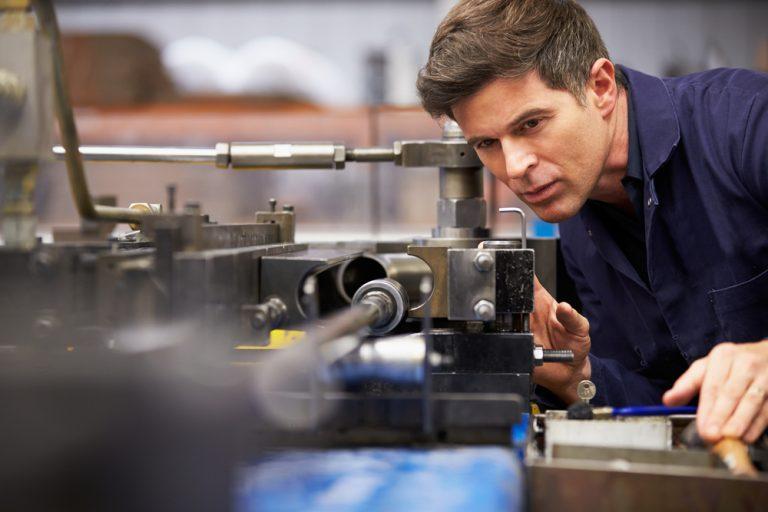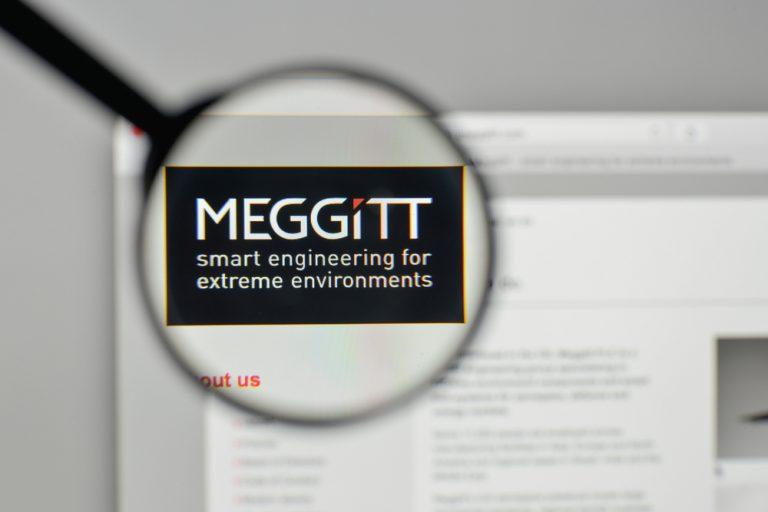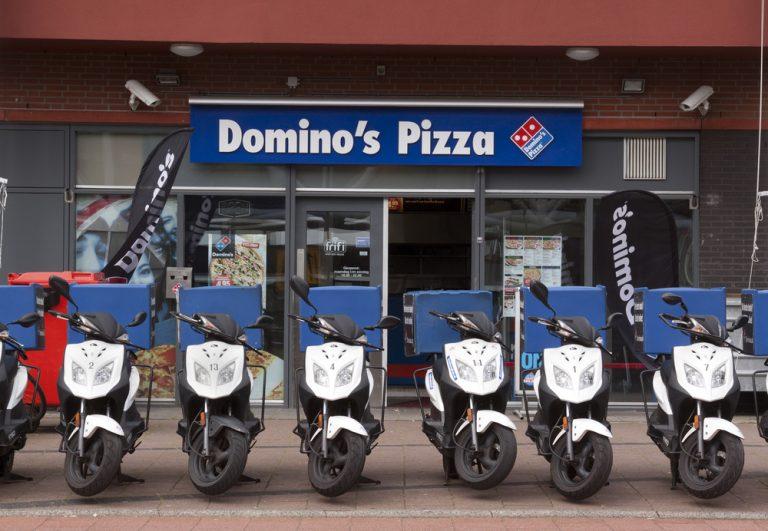Hastings Group shares sink 7pc as ‘Beast from the East’ affects claim costs
Insurance group Hastings (LON:HSTG) reported higher claims costs over the first quarter of the year due to adverse weather conditions, but confirmed it was “on track to deliver targets”.
The ‘Beast from the East’ caused an increase in claims over the period, but the firm said it remained confident of delivering a calendar year loss ratio just below or within the target range of 75 percent to 79 percent. Investors were less sure, however, with the statement sending shares down nearly 7 percent.
In other respects the firm performed well, with Q1 net revenue jumping 12 percent compared to the same period a year ago. Gross written premiums also rose 5 percent, partially offsetting the higher than expected claims costs.
“We remain on track to deliver on our targets, including achieving 3 million customers during 2019 whilst maintaining our underwriting discipline and strong capital position,” the firm said.
Live customer policies increased to 2.67 million, an impressive 10 percent year on year increase, with its share of UK private car insurance market rising to 7.4 percent.
Hastings Group (LON:HSTG) shares are currently trading down 6.81 percent to 260.20 (0848GMT).
Cobham turnaround plan on track with Q1 in line with forecasts
Technology and services provider Cobham (LON:COB) saw shares rise nearly 2 percent at market open on Thursday, after reporting fourth quarter trading in line with expectations.
The group said the results were proof its turnaround plan was taking shape, and it maintained its full year outlook on performance.
The equipment supplier said it continues to have “confidence in its medium-term prospects”, adding that it remained focused on mitigating any risks associated with onerous contracts. It also confirmed that it would continue to support tests on both the KC-46 aircraft refueling tanker program under its development and a production contract.
Looking forward, the group said cash generation was likely to be limited in 2018, partly due to the pattern of receipts and payments relating to its onerous contracts, which will likely weigh on cash outflows in the first half of the year.
“Cobham’s turnaround has continued in the first quarter and our overall trading performance within our ongoing business was in line with the Board’s expectations,” said David Lockwood, Cobham Chief Executive Officer.
Shares in Cobham (LON:COB) are currently trading up 1.86 percent at 117.55 (0833GMT).
Meggitt shares up on revenue boosts across the business
Aerospace systems engineer Meggitt (LON:MGGT) reported revenue increases across its civil, military and energy sectors on Thursday, sending shares up over 2 percent in early trading.
As a whole the group reported organic revenue growth of 6 percent for the first quarter, excluding the effects of foreign exchange and disposals.
Civil aerospace revenue grew 4 percent, with stronger growth in business jets offset by continued weakness in regional jets and reduced revenue on large jet platforms.
Military revenue increased by 2 percent organically, largely due to sales in its fighter jet division, and energy revenues grew by 39 percent organically, reflecting a weak comparator.
The group said it has made good progress on its recovery plan, and reaffirmed its guidance for organic revenue growth of between 2 and 4 percent.
The results come as Meggitt’s chairman Sir Nigel Rudd faces difficulties from his shareholders, who have concerns of “over-boarding”. Complaints have been raised that Rudd holds too many positions at other companies to dedicate enough time to the role of chair at Meggitt, with proxy adviser firm Institutional Shareholder Services (ISS) recommending in a report that shareholders vote against Rudd’s re-appointment.
Domino’s Pizza continue to impress with soaring sales
Pizza delivery chain Domino’s (LON:DOM) reported yet another strong quarter on Thursday, with sales at the chain continuing to rise.
Group system sales rose 18.3 percent to £311.1 million, up from £236 million in the same period last year. In the UK, system sales rose 10.6 percent, with like-for-like performance sales growth of 7 percent with strong like-for-like order growth of 6.7 percent.
System sales in the Republic of Ireland were up 5.2 percent on a constant currency basis, with international sales rose 17.6 percent.
The group also continued to open stores at a lightening rate during the first three months of the year, opening 11 new stores including nine in the UK. The group has plans to open between 65 and 75 UK stores during 2018.
“In the UK, customers are responding very positively to our clearer value proposition, with strong scores for value for money and overall satisfaction,” said David Wild, Chief Executive Officer.
“We have also made excellent operational progress, with the rapid roll-out of GPS continuing. I am encouraged by our international operations, which are gaining scale as more customers grow to love our great tasting pizzas.:
Shares on the London market are currently up 5.20 percent at 363.9 0(0808GMT).
Retirement living and how an individual can make smart investment decisions
The UK’s ageing population and the government’s struggle to look after them
According to parliament.uk, between 2015 and 2020 the number of over 65s residing in the UK is meant to increase by 12%. The number of those aged 85+ is meant to increase by 18%. The government and local authorities are already struggling to meet the needs of the elderly already in their care. The increased pressure on services will mean that their struggle will be almost impossible to overcome. With the improving quality of medicines, people are living longer in the UK. Whilst it is nice to think that more people will live long and healthy lives, unfortunately that is not always the case. Many develop health problems in their later years. This means that they may need extensive care. Research conducted by Newcastle University academics shows that in eight years, there will be a shortage of approximately 71,000 care beds as there will be an extra 353,000 older patients with complex care needs. Not only is there an urgent need for more care beds, but doubt has been cast over whether the current care homes in the UK are financially sustainable. Research by the London School of Economics has found that social care funding would need to increase by 4.4% above inflation until 2035 to cater for the needs of the ageing population. There is currently a shortfall in funding of £1bn a year according to the Competition and Markets Authority. The government has allocated an extra £150m to adult social care in the 2018/19 financial year, but experts have their reservations that this will ease any of the financial difficulties care home operators face. Those looking to invest in the UK property market may consider the care sector. Not only does it offer attractive returns within a favourable environment, but also because it helps to provide a much-needed service that local governments are failing to do. In purchasing a care home unit, it relieves the immediate pressure on local authorities and businesses to raise funds to build the much-needed units.Headwinds faced by the care home industry – a shortage of staff and a struggle to recruit nurses with adequate skill-sets
Inadequate local authority funding has meant that working in a care home has become unpopular with nurses. Care homes are often under-resourced and understaffed, meaning that existing employees work long hours with little reward. A 2016 report by Skills for Care found that each year just under 340,000 social care employees leave their job. Brexit and the poor performance of the pound will compound the problem. This would dissuade those from the EU coming to the UK to work and sending money back home. Over the past three years, the number of non-British EU nationals working in the care system shot up by over 40%, but if they leave the UK will struggle to replace them. Analysis published by the Institute for Public Policy Research shows that the UK will have to train up and recruit 1.6 million healthcare workers by 2022. A shortage of qualified nurses will have a larger impact on the care home industry, which caters for elderly patients with specific medical requirements, as opposed to retirement homes which can accommodate those looking to downsize or live with other people again.Retirement living investments – a more robust alternative
The strongest market lies within the retirement home investment sector. Residents are usually self-funded, which means that local authorities are not under pressure to meet the cost of their care. As the residents do not usually have complex medical needs, there is not a huge pressure to have lots of registered nurses on site who would administer medicine. This means that staffing levels within the retirement home sector are less likely to be affected by skills shortages and Britain’s departure from the EU. Retirement homes provide lucrative returns and with an ageing population there is a sustained market for their usage. Recognising the undersupply of retirement homes in the UK housing market, last year Legal & General acquired an existing UK operator and £40m of assets. In assessing the market, the company discovered that the retirement home asset class was one of the most undersupplied in the housing market. According to estimates, 3.3 million people in the UK wish to downsize, but only 7,000 specialise homes were built to accommodate them. Retirement homes are generally located in retirement hotspots in the UK, such as the Isle of Wight and Devon. Those in their later years tend to give up the hustle and bustle of city living and gravitate towards the countryside. There they can enjoy leisurely walks along the beach and lengthy ambles around a village’s local boutique shops and cafes. Luxury retirement homes host a wealth of social activities to combat loneliness, which can negatively affect health as much as smoking 15 cigarettes a day. These activities range to suit individual interests from fine dining to wine tasting to daily excursions. The homes also have amenities that you would associate with luxury living, such as an on-site award-winning chef, spa, hair and beauty salons.Retirement home investments – the fundamentals
These retirement home investments typically offer an annual return of 10% over a ten-year commercial lease. The suite is leased back to the developer for a fee and then operated by an experienced management company. It is completely hands-off for the investor, who only needs to concern themselves with what to do with the income received. As busy members of society, readers of UK Investor Magazine can appreciate that owning a rental property can often be draining as there are plenty of maintenance tasks that need to be undertaken. These are also classed as commercial property, and as many of the suites are under £150,000 they are exempt from stamp duty charges. Retirement homes are not under the same pressures that care homes are currently facing in terms of nursing staff shortages, increases in the minimum wage or lack of funding from the local government. They provide a service not specifically for those with complex medical needs, but for those either looking to release equity from their property, or who wish to spend time with other like-minded individuals. The increasing popularity of retirement living in the UK, the UK’s ageing population and the shortage of appropriate retirement living suites provides an ideal investment environment. Large corporations are recognising the gap in the market for retirement home investment and have begun investing millions into the sector. Opportunities tailored towards the individual investor and offered by One Touch Property often sell out within a few days. If large businesses and private investors are recognising the benefit of retirement home investing both socially and financially, will it pique your interest? About One Touch Property – an award-winning property investment company
About One Touch Property – an award-winning property investment company
One Touch Property have been sourcing investment opportunities in the property sector for almost a decade. Throughout that time, they have had plenty of experience in picking opportunities in robust sectors and in areas of high demand. Readers can download their bespoke 24-page report that discusses the care home industry in the UK and how individuals can benefit from investing in the sector if they choose the correct location and type of care home.
One Touch Property’s hard work and expertise has paid dividends. Clients who have invested in retirement home suites have been left satisfied.
One client wrote about their services:
“One Touch Property really excelled in their advice and commitment in helping me make my first international Care Home property investment purchase. Stuart Cowie was always willing to answer all of my questions and even though there was a time difference between our countries, he always made the effort to call me at my convenience. I was advised to utilise the services of Jonathan Sara who facilitated the purchase/lease agreements and here too the service was excellent. This was also on the advice of Stuart. I would have no hesitation whatsoever in dealing with Stuart & One Touch Property for my next investment.”
Contact One Touch Property on 020 3709 4275 or email enquire@onetouchinvestment.co.uk
Website: www.onetouchinvestment.co.uk AB Dynamics shares rise 5pc on revenue increase
Automotive testing system manufacturer AB Dynamics (LON:ABDP) reported a steep rise in revenue over the last half of the year, sending shares up 5.5 percent in early trading.
Profit before tax, excluding share option costs, increased 34 percent to £3.30 million, an increase from £2.46 million the year before, while revenues increased 39 percent to £15.3 million.
Cash flow from operating activities increased by £4 million to £5.3 million, whilst basic earnings per share increased 86 percent to 12.35p. The group appeased its investors with a 10 percent interim dividend hike, up to 1.465 pence per ordinary share.
Management maintained a positive stance going forward, saying in a statement:
“We have built a good forward order book, both for the remainder of 2018 and into next year which gives us confidence in meeting market expectations”.
Shares in Ab Dynamics, who are based in the UK but provide testing systems to the global automotive industry, are currently trading up 5.43 percent at 970.00 (0948GMT).
Thirst for adverts sends Alphabet profits higher
Google-owner Alphabet saw profits rise almost 73 percent over the past three months, aided by price hikes for their adverts and currency movements.
First-quarter net income rose to $9.4 billion, up from $5.4 billion in the same period last year, beating analyst expectations. Revenue also jumped, rising 26 percent to $31.1 billion.
The group seemed to shrug off an increased scrutiny of its privacy protection, with an increased interest in their pay-per-click advertising over the period. Prices for their adverts rose, as advertisers continued to fight for space on their search engine, YouTube video service and millions of partner apps and websites.
Worldwide ad sales increased to $31.1 billion, well above the average analysts’ estimate of $30.3 billion.
Alphabet was also aided by a $3 billion boost from accounting rules chances, as well as $1.1 billion from currency exchange movements.
Company shares jumped in after hours trading after the news was announced, but have since dropped again.
St James’s Place report 13pc fund growth, despite weak markets
Wealth manager St. James’s Place (LON:STJ) reported a 13 percent growth in funds under management, despite feeling the impact of weaker markets.
Net inflows increased during the first quarter of the year, with funds under management reaching £89.91 billion, with inflows of £1.99 billion in the previous corresponding period.
Retention of client funds stood at 96 percent, despite total assets falling 0.9 percent in the three months. The group said it had been hit by the impact of weaker markets, but had “maintained momentum” over the period.
“After a record year for new business in 2017, we have maintained momentum in the first quarter of 2018,” chief executive Andrew Croft said.
“Weaker investment markets resulted in funds under management closing at £89.91 billion, marginally lower over the three months but still up strongly over the past year.”
Croft said the company continued to see a growing market for trusted face-to-face financial advice.
“This growing market, together with the strong start we have made to 2018, reinforces our confidence in our ability to achieve our stated objective of 15-20 percent growth in gross inflows during 2018 and beyond,” he said.
Shares in the investment management group are currently trading down 0.26 percent at 1,143.50 (0913GMT).
Clarkson shares sink 25pc on profit warning
World-leading shipping broker Clarkson (LON:CKN) reported a significant drop in profits for both the full year and the half year, citing the shipping industry’s “challenging environment” as the main cause.
Figures are now expected to be materially below expectations, as lower freight rates within the tanker market and a fall in the value of the US Dollar contributed to a weaker than expected performance.
“The challenging environment in shipping and offshore capital markets has led to transactions being pushed back within the financial segment and has compounded a quiet period in sale and purchase activity for the group across shipping and offshore,” the firm said.
Shares in Clarkson (LON:CKN) dived on the news, currently trading down 26.89 percent at 2,270.00 (0933GMT).












